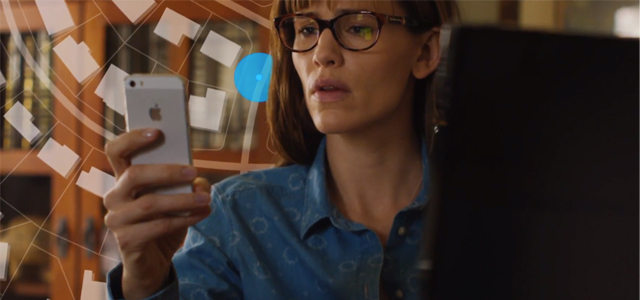(M) Adam Sandler, Jennifer Garner, Rosemarie DeWitt, Judy Greer, Dean Norris, Ansel Elgort, Kaitlyn Dever, Olivia Crocicchia, Elena Kampouris, Emma Thompson
Unplug your computers and throw away your phones because the internet is destroying white, middle-class existence as we know it. That seems to be the take home from writer-director Jason Reitman’s latest film, the off-puttingly alarmist Men, Women & Children.
Based on the novel of the same name by Chad Kultgen, Men, Women & Children is a movie about the way we live today, navigating both real life and an online existence with the latter increasingly impacting on the former. The film is an ensemble piece centred on the personal melodramas of the teens and parents of East Vista Texas High School in Austin, with each narrative strand introducing a different digital concern to be considered. Chris is a fifteen year old whose addiction to internet pornography has warped his perceptions of physical intimacy. Tim was a star high school athlete who reacted to his parents’ divorce by quitting football and immersing himself in online role-play games. Allison’s eating disorder and body image problems are encouraged by her connection to ‘pro-ana’ forums. Hannah’s quest for fame sees her uploading inappropriate images of herself for consumption by her ‘fans.’ Then you have the challenges of parenting in the digital era. Some parents are ignorant, some are enablers, some are militantly over-protective, like Brandy’s mother who insists on weekly spot-checks of her social media profiles and internet search history as well as screening all of her incoming and outgoing text and instant messages.
These cautionary tales raise some valid concerns. We do live in a world in which we seem to be at once more connected than ever before and yet more isolated from those around us. We can reach each other instantly, but seem incapable of genuine communication. We are in danger of becoming so overstimulated that we become numb to human intimacy. However, none of these messages are startlingly new. Despite its alarmist tone, this movie is not quite as shocking or revealing as it might have been eight years ago when social media was in its infancy.
What is missing from Men, Women & Children’s discussion is any form of counter-argument, any acknowledgement of positive impacts of social media and digital connectivity rather than just the damaging effects. The closest the film comes to this is when Brandy confesses to Tim that she has a secret Tumblr account which she feels is the only place where she can really express herself free from her controlling mother. Instead, Men, Women & Children feels like it is written by an outsider, someone with little direct experience of online community and connectivity who is simply frustrated by the sight of people engrossed in their screens. Given Reitman is only 37 years old, you would expect him to be more familiar with the world of social media than this often simplistic film gives the impression that he is.
Reitman seeks to give his exploration a grand, cosmic significance through an incredibly forced narration from Emma Thomson. This odd, uneasy framing device contrasts the events of the film with Voyager 1’s thirty year journey to the very extremes of our solar system and beyond. Apparently this contrast is intended to provide some perspective in the film, whether by drawing our attention to our own cosmic insignificance or by comparing the heights of technological achievement with the depths of what we now use it for. However, it just manages to feel awkward.
The deep, ensemble cast features some strong performances, particularly from some of the lesser known adolescent actors, but mostly the cast members are struggling to flesh out characters who are little more than thinly drawn caricatures. As such, Men, Women & Children becomes a film which you engage with on an intellectual level more so than an emotional one. The only plotline which seems to really hit an emotional chord is the budding romance between Brandy and Tim who, when together, actually appear to be genuine people.
The way technology has changed and continues to change human interaction and relationships is an area ripe for cinematic exploration, but it requires more nuance than the preachy and heavy-handed Men, Women & Children is willing to offer.
Duncan McLean












